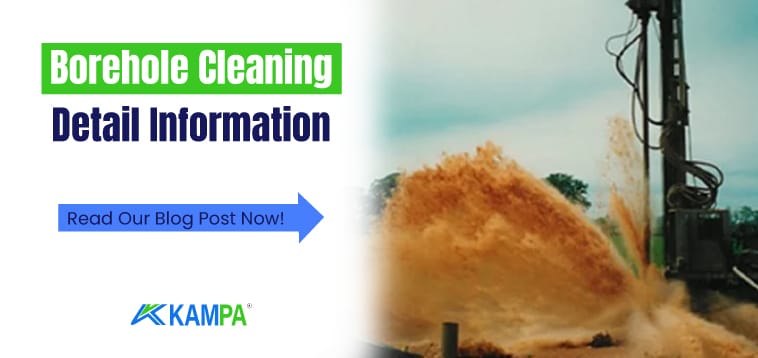Borehole Cleaning Detail Information
Borehole cleaning is the regular maintenance of the wells from which underground water is obtained by drilling so that the wells can fulfill their duties efficiently.
Table of Contents
Borehole cleaning is important to improve water quality, increase well yield, prevent submersible pump failures and extend the life of the well. Different methods are used for borehole cleaning. The choice of these methods depends on factors such as the depth, diameter, geological structure, water status and frequency of use.
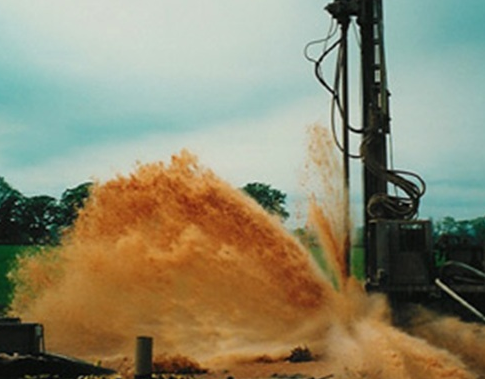
Borehole Cleaning Methods
Brush Method:
In this method, a pipe with a brush attached is lowered into the well and the sediment and contamination on the well walls are cleaned with the help of the brush. This method alone may not be sufficient and can be applied in combination with other methods.
Chemical Agent Method:
In this method, a drilling fluid, selected taking into account all the characteristics of the well, is poured into the well and left for a day or two. During this time, the drilling fluid removes harmful bacteria, oxidation and blockage from the well. The drilling fluid is then drained from the well.
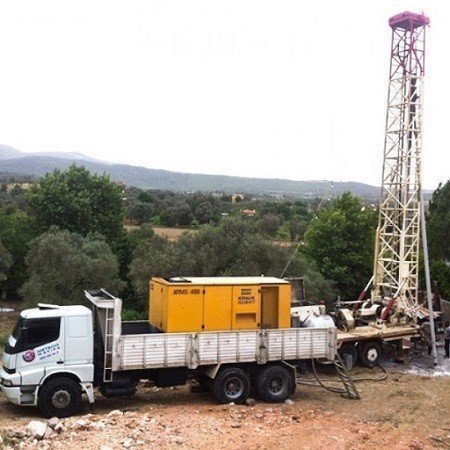
Water Transportation Method:
In this method, pressurized water is injected into the well and mud, sand and other substances accumulated at the bottom of the well are discharged. Water pressure and flow rate are important in this method. There may also be water loss in this method.
Injection Method:
In this method, pressurized air is introduced into the well to mobilize the materials at the bottom of the well. These materials are then carried out together with the water. It is important to adjust the air pressure in this method.
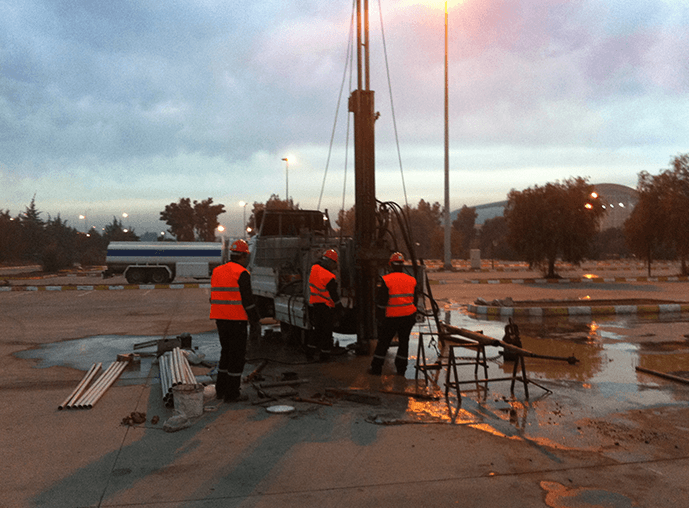
When Should Drilling Well Cleaning Be Done?
It is difficult to specify a precise time interval for borehole cleaning. However, it is generally recommended to clean every two years or annually. However, borehole cleaning is also required in the following cases:
- Muddy or turbid water coming from the well
- Decrease in the pressure or flow rate of the water coming from the well
- Water from the well smells or tastes bad
- Visible contamination in your water tank
- Wear or failure of the submersible pump
Why does the taste of borehole water change?
Borehole water is a system that provides clean and healthy drinking water to our homes and workplaces using groundwater. But sometimes the taste of borehole water can change. What are the causes of this change and how can we prevent it?
The most common reasons why borehole water tastes different are the following:
- Chemical composition of groundwater: Groundwater can contain different minerals, salts and acids due to the influence of the soil and rocks in which it is found. These substances can affect the taste, smell and color of borehole water. For example, substances such as iron, manganese, sulphur and hydrogen sulphide can make borehole water smell and taste metallic, like rotten eggs or mud.
- Microbiological quality of groundwater: Although groundwater is cleaner than surface water, it can sometimes be contaminated with microorganisms such as bacteria, viruses, fungi, algae or protozoa. These microorganisms can spoil the taste of borehole water and lead to health problems. For example, bacteria such as E. coli, Salmonella, Shigella and Campylobacter can make borehole water taste dirty or moldy and cause infections such as diarrhea, vomiting, abdominal pain or fever.
- Condition of borehole equipment: Borehole equipment can corrode, rust or algae over time. When this happens, equipment such as a borehole pump, filter, hose or faucet can affect the taste of borehole water. For example, a rusty pump or filter can make borehole water taste rusty or dusty.
- Factors around the borehole: Factors around the borehole can also change the taste of borehole water. For example, if there are contaminants such as pesticides, fertilizers, animal feces, wastewater or chemicals near the borehole, they can leach into the groundwater and impair the taste of the borehole water. Also, if natural disasters such as fires, floods or earthquakes occur near the borehole, they can affect the flow or composition of groundwater and change the taste of borehole water.
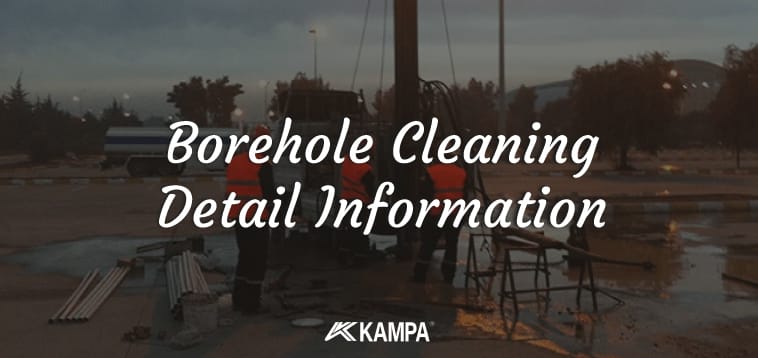
What can we do to prevent the taste of borehole water from changing?
To prevent the taste of borehole water from changing, we can follow these steps:
- Regularly check and maintain borehole equipment: It is necessary to check borehole equipment at least once a year to make sure it is in working order and repair or replace it if necessary. It is also necessary to clean the borehole pump and filter and use appropriate chemicals to prevent algae growth.
- Protecting and keeping the borehole environment clean: To avoid contaminants around the borehole, do not use or store substances such as pesticides, fertilizers, animal feces, wastewater or chemicals near the borehole. It is also necessary to clean up litter, leaves, branches or animal carcasses near the borehole and keep the borehole cover closed.
- Testing and treating borehole water: Borehole water should be tested at least once a year by a laboratory to determine its chemical and microbiological quality. Based on the test results, it is necessary to choose appropriate methods to treat the borehole water. For example, if the borehole water contains substances such as iron, manganese or sulphur, methods such as oxidation, filtration or ion exchange can be used. If the borehole water contains microorganisms such as bacteria, viruses or protozoa, methods such as boiling, chlorination, ultraviolet rays or ozonation can be used.
Click here for prices of submersible pumps for boreholes. Click here for detailed information about well pumps.

